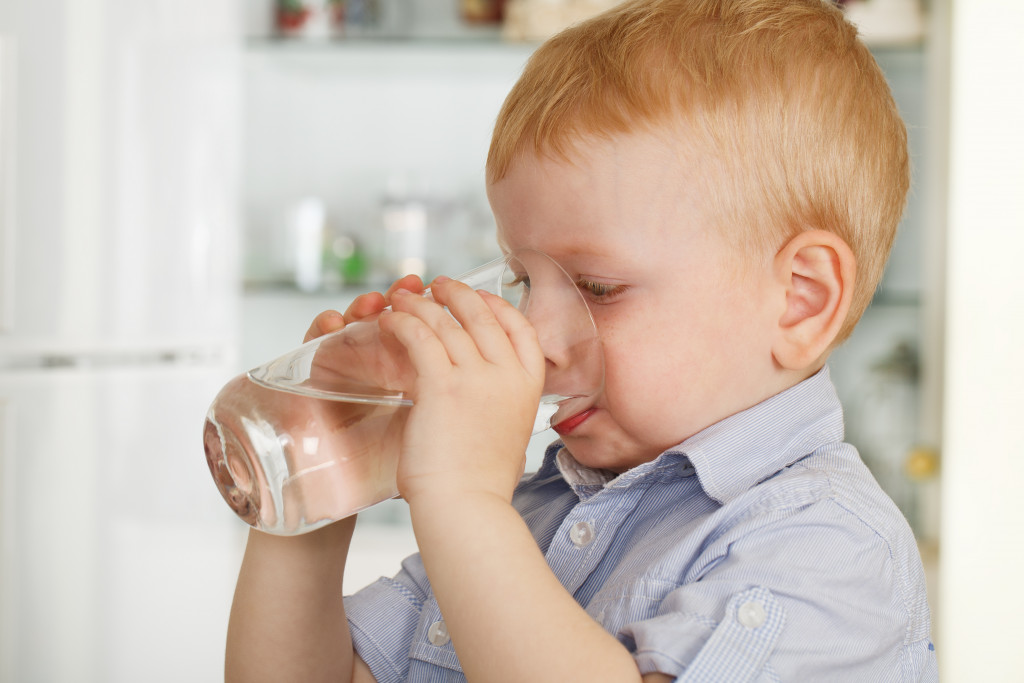Summertime is an excellent opportunity for children to get active and enjoy the outdoors. However, they can also be at risk for injuries without proper precautions. Many parents are unaware of how to keep their children safe and healthy during this time. So here are some tips for keeping active children healthy during the summer.
1. Ensure they stay hydrated.
Active children can quickly become dehydrated, especially in warmer weather. Make sure they drink plenty of fluids throughout the day, even if they don’t seem thirsty. Water is the best option, but you can also offer them unsweetened fruit juice or milk. But avoid sugary drinks like soda, as they can contribute to dehydration.
Signs of dehydration in children include:
- Thirst
- Dry mouth
- Tiredness or fatigue
- Headache
- Dizziness
- Crankiness or irritability
If your child is showing any of these signs, have them drink fluids immediately and seek medical attention if they don’t improve. You should also call the doctor if your child is vomiting or has diarrhea, as they can become dehydrated quickly.
2. Get their teeth checked.
Summertime is a great opportunity to get your child’s teeth checked. Many dental offices offer free or discounted services for children during the summer months. And it’s essential to keep their teeth healthy, as cavities can lead to pain and other health problems.
For younger children, you can also help protect their teeth by applying fluoride toothpaste to their toothbrushes. And avoid giving them sugary drinks, as they can increase the risk of cavities. Ask your local dentist for more tips on keeping your child’s teeth healthy.
3. Protect their skin from the sun.
Sun exposure can cause serious health problems, including skin cancer. About one in five Americans will develop skin cancer in their lifetime. And children are at a higher risk because their skin is more sensitive.
So it’s vital to protect your child’s skin from the sun. Apply sunscreen with SPF 30 or higher to exposed skin and reapply every two hours or after swimming. You should also dress your child in protective clothing, including a hat and sunglasses. If they’re going to be in the sun for a long time, make sure they take breaks in the shade.
The sun’s rays can still damage your child’s skin, even if it is cloudy. So it’s essential to take precautions even on cloudy days.

4. Keep them cool in the heat.
When it’s hot outside, ensure your child stays cool to avoid heat-related illnesses. Dress them in loose, light-colored clothing. And keep them in the shade as much as possible. You should also have them drink plenty of fluids, even if they don’t feel thirsty.
If your child starts to feel faint, dizzy, or nauseous, move them to a cooler area and have them drink fluids. And if their skin is hot and red, they have a headache, or they’re vomiting, call the doctor immediately.
5. Check for insect bites and stings.
Summer brings insects, including mosquitoes, ticks, and bees. Insect bites and stings can cause serious health problems, including allergic reactions. You want to check your child for bites and stings regularly, especially if they’ve been outside for a long time.
If you see a bee sting, remove the stinger quickly. Look for a red, itchy bump if you see a mosquito bite. And if you find a tick, remove it with tweezers. Be sure to clean the area with soap and water afterward.
If your child has a severe reaction to an insect bite or sting, such as difficulty breathing, call 911 immediately. These reactions can be life-threatening, so it’s essential to get medical help right away.
6. Prevent illnesses.
Your child can catch many summer illnesses, including swimming pool germs, food poisoning, and sunburn. The heat can also make some illnesses, such as heat stroke, more likely.
You can help prevent these illnesses by teaching your child good hygiene habits. Have them wash their hands regularly, especially before eating. And make sure they take a shower after swimming.
You should also avoid letting your child swim in stagnant water, as it can contain harmful bacteria. And be careful about the food you eat, as some summer foods, such as berries and melons, can cause food poisoning if they’re not properly cleaned.
Summer is a great time for children to be active and have fun. But it’s essential to take steps to keep them healthy during the summer months. Following these tips can help your child enjoy a healthy and safe summer. If you have any concerns, talk to your child’s doctor. They can provide more information on how to keep your child healthy during the summer.
